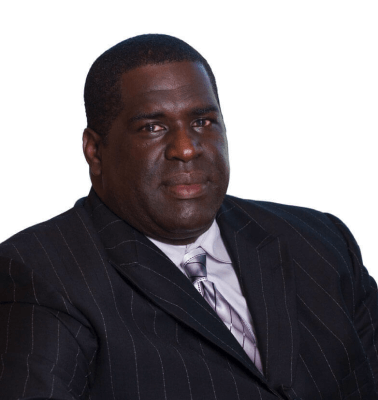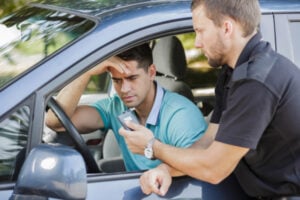 Being pulled over by the police for suspected DUI can feel overwhelming. You might wonder what to do if the officer asks you to take a breathalyzer test. Some people think refusing the test can help them avoid trouble. Others fear it will make things worse. So, what if you refuse a breathalyzer test during a DUI stop?
Being pulled over by the police for suspected DUI can feel overwhelming. You might wonder what to do if the officer asks you to take a breathalyzer test. Some people think refusing the test can help them avoid trouble. Others fear it will make things worse. So, what if you refuse a breathalyzer test during a DUI stop?
Summit Defense Criminal Lawyers helps drivers understand their rights and defend their DUI cases. If you are unsure about what steps to take, we can guide you through the legal process and help protect your future. A DUI charge can lead to serious consequences, even if you thought you were making the right choice by refusing the test.
Knowing your legal rights and what happens next is the first step to building a strong defense. We are here to support you.
What Is a Breathalyzer Test?
A breathalyzer test is a device used by police to measure the amount of alcohol in your breath. When you blow into it, the machine estimates your blood alcohol content (BAC). If your BAC is over the legal limit, which is usually 0.08% in California, you may be arrested for drunk driving.
Police officers use this test during a DUI stop to help decide if a driver has been drinking. It is one of the main tools used to gather evidence. Sometimes, officers may also use field sobriety tests or ask you to take a blood or urine test later, especially if they suspect you are under the influence of alcohol or drugs.
Understanding what this test does and how it fits into your DUI case is important, especially if you refused to take the breath test during your stop.
Implied Consent Laws – You Already Agreed
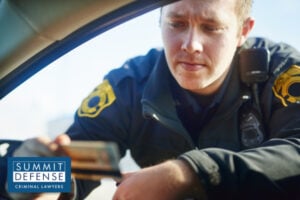 In California, by getting a driver’s license and driving a car, you automatically agree to follow the state’s DUI laws. This includes agreeing to take a breathalyzer test if a police officer believes you may be driving under the influence. This is called “implied consent.”
In California, by getting a driver’s license and driving a car, you automatically agree to follow the state’s DUI laws. This includes agreeing to take a breathalyzer test if a police officer believes you may be driving under the influence. This is called “implied consent.”
That means you do not have to sign anything or say yes at the moment of the stop. The law assumes you already gave permission just by driving. If you refuse a breathalyzer test during a DUI stop, the DMV can still suspend your driver’s license even if you are not convicted in court. This refusal may also lead to harsher penalties under California DUI laws.
Police officers do not need to prove you knew about implied consent — they only need to show that they had a legal reason to pull you over and ask for the test.
What Happens If You Refuse a Breathalyzer Test?
Refusing a breathalyzer test during a DUI stop in California can lead to several serious consequences. Even if you believe you are protecting yourself, the law may treat your refusal as a separate violation.
Some of the penalties you may face after refusing to take the test when asked by a police officer are:
License Suspension
If you refuse a breathalyzer test, the DMV can suspend your driver’s license automatically, even before your criminal case starts. For a first refusal, California law allows a 1-year license suspension. If this is your second or third refusal, the suspension can be even longer. This penalty happens whether or not you are found guilty of DUI in court.
Refusal Can Be Used Against You in Court
Your refusal to take a breathalyzer test can be brought up during trial. Prosecutors may argue that you refused because you knew you were over the legal limit. This can make your DUI defense more difficult and may influence the judge or jury’s opinion of your case.
Fines and Penalties May Increase
Refusing a breathalyzer test can lead to higher fines, more time in DUI education programs, and even longer jail time if you are convicted. The court may also view your refusal as a sign of non-cooperation, which can affect the outcome of your DUI case and lead to additional penalties beyond those for a normal DUI charge.
Is Refusing Ever a Good Idea?
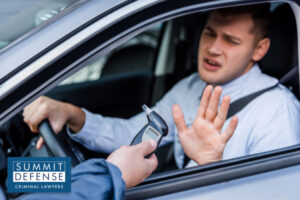 Refusing a breathalyzer test during a DUI stop might seem like a smart way to avoid giving the police more evidence. However, in most cases, refusing the test makes your situation worse. If you refuse, you face license suspension, possible jail time, and other serious consequences, even without a DUI conviction.
Refusing a breathalyzer test during a DUI stop might seem like a smart way to avoid giving the police more evidence. However, in most cases, refusing the test makes your situation worse. If you refuse, you face license suspension, possible jail time, and other serious consequences, even without a DUI conviction.
There are very few situations where refusing might help. For example, if you are certain you are completely sober and the field sobriety tests were done incorrectly, your attorney may argue the refusal helped prevent flawed results. But these cases are rare, and the legal risks are high.
Before deciding to refuse a test, it is best to speak with a DUI lawyer. They can help you understand your options and whether refusing would hurt or help your case.
Can You Be Forced to Take a Chemical Test?
Yes, in some cases, you can be forced to take a chemical test like a blood test, even if you refuse a breathalyzer. In California, law enforcement officers may get a warrant from a judge if they believe you are driving under the influence and you refuse to give a breath sample. With a warrant, they can take you to a hospital or clinic to draw blood.
Also, if you were involved in an accident that caused injury or if you have prior DUI convictions, officers may have the right to force a chemical test without your permission. This is because public safety becomes a bigger concern in those situations.
While you have the legal right to refuse a breathalyzer test, that right is limited. If a blood draw is ordered by a judge, refusing again could lead to more charges, higher fines, and even jail time.
Defenses Against Refusal-Related Penalties

- Lack of Probable Cause: If the police officer did not have a valid reason to stop you or suspect DUI, your defense attorney may argue that the entire stop, and the request for a breathalyzer test, was unlawful.
- Improper Police Procedures: If law enforcement officers failed to follow the correct steps during the traffic stop or did not properly explain your rights under implied consent laws, the refusal might be challenged in court.
- Medical Conditions: If you have a medical condition that prevents you from giving a valid breath sample or blood draw, this can be used to show your refusal was not intentional or avoidable.
- Language Barrier or Misunderstanding: If you did not clearly understand that you were refusing the test because of a language barrier or confusion during the traffic stop, that misunderstanding can be a valid defense.
- No Clear Refusal: If you did not clearly say “no” or your actions were misinterpreted, your lawyer may argue that there was no actual refusal of the breathalyzer test.
What to Do After Refusing a Breathalyzer
If you refused a breathalyzer test, you need to act quickly. A refusal can lead to a license suspension, fines, and other serious problems. There are only a few days to take action before your driving privileges are affected. Taking the right steps now can help protect your rights and fight back against DUI penalties.
Request a DMV Hearing Immediately
You only have 10 days to request a hearing with the DMV after a breathalyzer refusal. This hearing decides whether you will lose your driver’s license. If you miss this deadline, your license suspension begins automatically.
Hire a DUI Lawyer
A skilled lawyer can build your defense strategy, explain your rights, and represent you in both criminal court and the DMV hearing. Summit Defense Criminal Lawyers can help you fight the charges and work toward the best outcome.
Do Not Ignore the Charges
Ignoring a DUI charge or license issue will only make things worse. You may face extra fines, longer suspension periods, or even jail time. Always respond quickly and follow your lawyer’s advice.
Get Legal Help from Our DUI Defense Lawyer
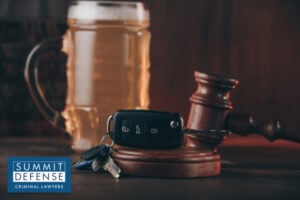
Refusing a breathalyzer test can lead to serious trouble, but you do not have to face it alone. A skilled DUI defense lawyer can look at the details of your stop, check whether the police officer followed the rules, and build a strong plan to protect you. You may have been confused, afraid, or dealing with a medical condition at the time of the test. A lawyer can use those facts to help your case.
Summit Defense Criminal Lawyers understands how stressful a DUI arrest can be. Our team will review the police report, the officer’s actions, and any available test results to find the best way forward. Whether it means fighting the charge, negotiating a plea deal, or working to protect your driver’s license, we are ready to help. With the right legal help, you may avoid the worst penalties and move on with your life.







